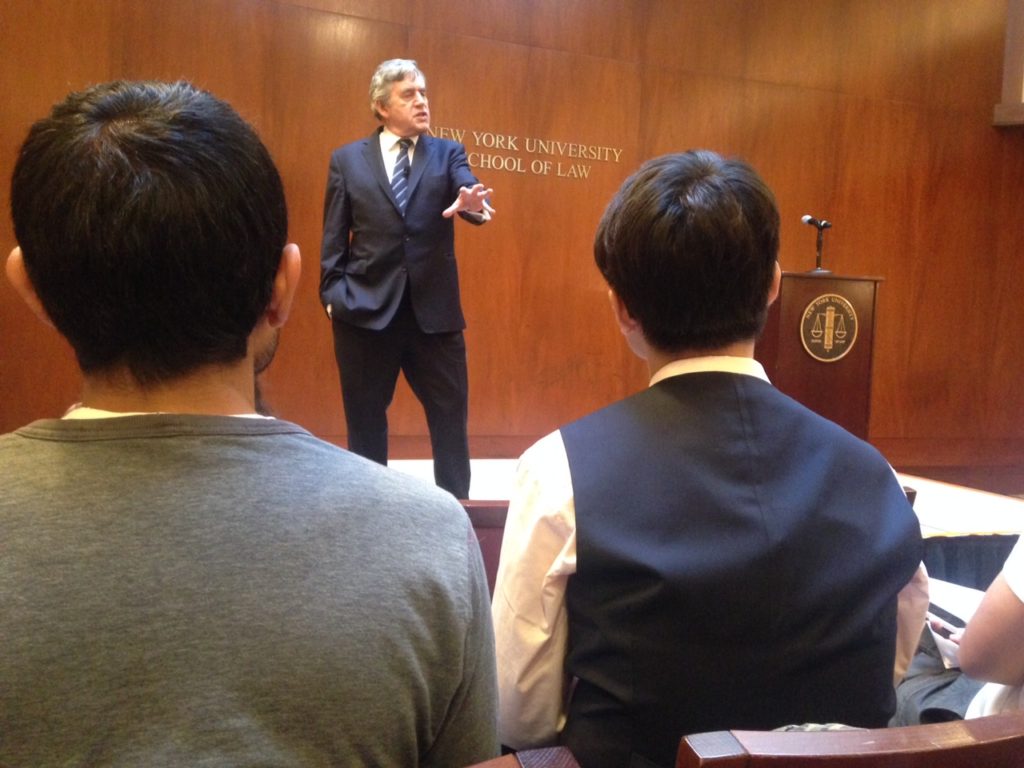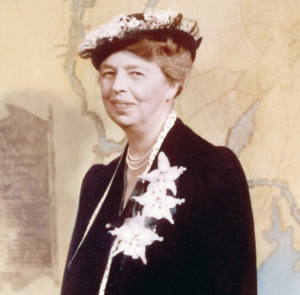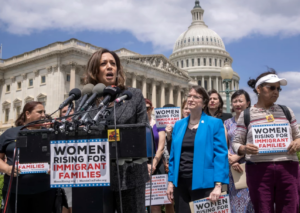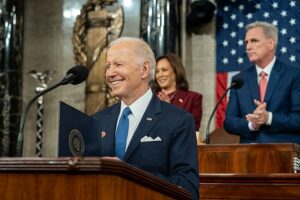A Leaderless Movement: Gordon Brown on Globalization
The nervous murmur of the crowd evolved into a boisterous applause as former Prime Minister of the United Kingdom, Gordon Brown, strolled onto the stage. He waved at his onlookers and grinned while placing his bottle of blue seltzer water on a richly-colored podium at the edge of the stage. The journalists hit play on their recorders.

Gordon Brown at New York University on September 15, speaking on the subject of globalization and anti-globalization movements. Photo | Clare Church, JPI
Gordon Brown at New York University on September 15, speaking on the subject of globalization and anti-globalization movements. Photo | Clare Church, JPI
The room was filled with an impatient buzz. Students and faculty looked around, both admiring their surroundings and hoping to get a glimpse of the world leader who would speak in only a few short minutes.
Five journalists in the third row reached into their bags and set up their pencils, notepads, and recording devices. A young man in a black suit, with a blue and red tie, sat alone in the first row, hands folded on his lap, eyes staring attentively at the empty stage.
Finally, the nervous murmur of the crowd evolved into a boisterous applause as former Prime Minister of the United Kingdom, Gordon Brown, strolled onto the stage. He waved at his onlookers and grinned while placing his bottle of blue seltzer water on a richly-colored podium at the edge of the stage. The journalists hit play on their recorders.
“I know that a university stands for objectivity, rationality, impartiality, the sector of truth and knowledge,” said Brown, his voice amplified through a tiny microphone hidden in the fabrics of his navy blue suit. “These are all qualities that I had to leave behind when I went into politics.”
The crowd responded with polite laughter.
Brown gave a talk at New York University on September 15, on the subject of globalization and anti-globalization movements. He covered the implications of Brexit for politicians in Europe and the rest of the world and suggested policy solutions against the right-wing populist movements. Although not in power anymore, Brown remains in a leadership position as UN Special Envoy for Global Education, Chair of the Global Commission on Financing Global Education, and Distinguished Global Leader in Residence at New York University. In the wake of the panic stirred worldwide by Brexit, this speech was part of a string of appearances Brown offers at academic institutions around the world.
Brexit refers to the UK’s recent decision to leave the European Union. This decision was made through a referendum, in which 52 percent of the voters decided to leave the cooperating body. “Because of how we see Britain, it [Brexit] was the closest to a revolutionary change that we could ever have imagined,” Brown said.
“But if you were to think that what happened in Britain was something that was unique, unprecedented, or has no parallels with what’s happening in the rest of the world, I think you’d be wrong,” said Brown, five minutes into his speech. “What happened in Britain in June was not happening in a vacuum.”
Brown then pointed to other incidents of unrest in Europe, proving the global pervasiveness of dissatisfaction with international bodies. Hungary, Germany, Ireland. As he created his list, he paced across the stage in a systematic rhythm. His black, shined shoes echoed throughout the hall as they met the cool grey stage. Spain, the Netherlands, and France. He looked to the crowd with a sense of urgency, and they looked back intently. Their eyes followed his large, sturdy body from one side of the stage to the other. Portugal, Greece, Italy. Much like this speech, his heavy footsteps were delivered with authority and purpose.
He stopped his pacing, and put one hand in the pocket of his suit, his dark eyes measuring up his spectators. “So here you are, talking about Brexit, and Britain’s decision to leave the European Union,” he said. “But you’re also talking about what’s happening in so many different countries in Europe. The loss of trust in government.”
To explain this loss in trust, Brown spoke to the changing economy and reshuffling of power worldwide. “Go to any industrial town in Britain, true of Europe, and possibly trust of parts of America, and you see this complete wipe out of manufacturing jobs,” said Brown. This resonated with the largely American crowd, who could think of a group of voters in their midst dissatisfied with the loss of manufacturing jobs. That these same voters might choose a racist leader to solve their problems in the nearing election, drifted like a ghost in and out of the silenced hall.
Brown continued, “You’ve got this group of the Western middle class that feels increasingly under pressure. They feel that their livelihoods are at risk, their jobs are insecure, and their wages are not as high.”
Logic followed for Brown: “We will have to build global institutions that make sense to people who are skeptical, and cynical about the benefits that come from globalization, and convince them!” Brown took a long sip from his sapphire blue glass water bottle, “You’ve got to answer the fears that people have about the effect of global change on their lives.”
The we and you hung heavy across the room. Students and faculty sat in deep-red velvet and mahogany chairs, soaking in Brown’s words while looking up at the imposingly tall political figure before them. His salt-and-pepper hair was perfectly coiffed, his royal blue striped tie straight and narrow. He had an undeniable air of confidence and clout that radiated off the stage.
“If globalization is leaderless, and there’s no human face, then people are bound to be cynical about its effects on their lives,” persisted Brown. Unlike right-wing populist movements, globalization movements do not have a face, no Donald Trump or Marine Le Pen to rally behind. “People want to have a sense of national identity, to be respected, to be proud of their countries, but they can also be persuaded that there is a need to cooperate and to work together to make the world better.”
The crowd could feel his speech wrapping up, as it quickened with every stride he made across the platform.
He turned to the audience, accusingly: “If globalization has no leaders, and I don’t see any at the moment… if you’ve got no leaders, then you’re never going to have any followers, are you?”
The crowd hesitantly looked to one another, then up to the man with the booming voice before them. There stood a man who spoke eloquently, and with great expertise for the last 40 minutes about the importance, and yet the distrust, of globalization and its need to adopt a leader.
At the conclusion of his speech, dozens of students rushed to the microphone to ask Brown more questions about his thoughts on their respective concerns. At the reception after the talk, Brown was surrounded constantly by a swarm of students, requesting pictures, autographs, and his opinions. Buzzing around him, waiting to get a taste of his honeyed recommendations.
The next day, Brown continued to another school to deliver his speech about a “leaderless” movement.
Clare Church is the Editor-in-Chief of JPI and a M.A. Candidate in International Relations and Journalism at New York University. She completed her undergraduate degree in History and Political Science at the University of Waterloo. Her research areas of interest include indigenous issues, resistance studies, and human rights.







